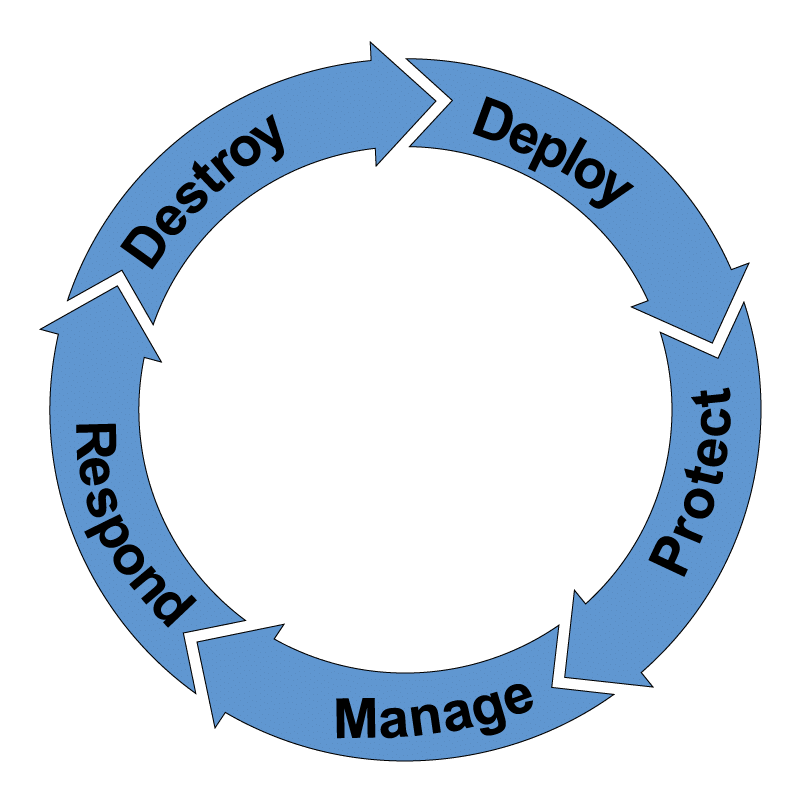2024 Cybersecurity Essentials for Companies: Preparing for the Unpredictable
 Today a businesses’ online presence is not just a luxury but a necessity, and cybersecurity has taken center stage. With increasing cyber threats, companies with 25 or more employees and those that conduct business online can no longer afford to overlook the importance of a robust cybersecurity strategy. Downtime due to a cyberattack can be detrimental to your business financially and reputationally. To ensure you are well-prepared for the ever-evolving cyber threats of 2024, we are focusing on three fundamental cybersecurity essentials: Incident Response Plans (IRP) and Tabletop Exercises, 3rd-Party Vendor Risk Management, and Business Continuity/Disaster Recovery (BC/DR).
Today a businesses’ online presence is not just a luxury but a necessity, and cybersecurity has taken center stage. With increasing cyber threats, companies with 25 or more employees and those that conduct business online can no longer afford to overlook the importance of a robust cybersecurity strategy. Downtime due to a cyberattack can be detrimental to your business financially and reputationally. To ensure you are well-prepared for the ever-evolving cyber threats of 2024, we are focusing on three fundamental cybersecurity essentials: Incident Response Plans (IRP) and Tabletop Exercises, 3rd-Party Vendor Risk Management, and Business Continuity/Disaster Recovery (BC/DR).
Incident Response Plan (IRP) and Tabletop Exercises
Preparing for the Inevitable
In the digital landscape, it’s not a matter of ‘if’ but ‘when’ your company will face a cyber incident. This is where an Incident Response Plan (IRP) becomes indispensable. An IRP is a pre-established set of procedures that your organization will follow during a security incident. It’s your blueprint for reacting to and recovering from security breaches, data breaches, or cyberattacks.
IRPs play a vital role in mitigating the impact of a cyber incident. They enable your team to respond quickly, efficiently, and effectively, reducing the time it takes to recover and minimizing the damage to your business. In 2024, the importance of having a well-documented and up-to-date IRP cannot be overstated.
Tabletop Exercises: Practice Makes Perfect
While having an IRP in place is crucial, having it sit on a shelf collecting dust is a recipe for disaster. This is where Tabletop Exercises come into play. These exercises are like fire drills for your cybersecurity team. They help your employees become familiar with the IRP and understand their roles during a security incident.
In a Tabletop Exercise, your team simulates a security incident scenario. It’s a controlled environment where everyone involved gets to practice responding to the incident as if it were real. This allows you to uncover any weaknesses in your plan, improve your team’s response skills, and build employee confidence.
Why IRPs and Tabletop Exercises Matter
- Rapid Response: In a cyber incident, time is of the essence. A well-executed IRP, honed through Tabletop Exercises, allows your organization to respond quickly and effectively, minimizing the damage caused.
- Reduced Downtime: Downtime can be financially crippling. Having a plan in place can minimize downtime and get your business back on track as soon as possible.
- Legal and Regulatory Compliance: Compliance with data protection regulations often requires having an IRP. Non-compliance can lead to significant fines and legal issues.
- Reputation Management: How you handle a security incident can damage your reputation. A swift and effective response can help maintain the trust of your customers.
In 2024, cyber threats continue to evolve, and attackers are becoming more sophisticated. Having a solid IRP and regularly conducting Tabletop Exercises is your first defense against these evolving threats.
3rd-Party Vendor Risk Management
The Weak Link in the Chain
In an interconnected business world, third-party vendors are integral to your operations. They may handle sensitive data, provide services essential to your business, or offer solutions that help your organization thrive. However, they can also be a significant source of risk. In 2024, third-party vendor risk management is a cybersecurity essential that should be considered.
Assessing Vendor Security
Before entering into partnerships with third-party vendors, evaluating their cybersecurity practices is crucial. This includes assessing how they handle data, what security measures they have in place and their incident response capabilities.
You can request documentation, perform audits, and even require them to adhere to specific security standards. The goal is to ensure that your vendors are not the weak link that cybercriminals can exploit to access your data or systems.
Establishing Vendor Contracts
Clear, comprehensive contracts with your third-party vendors are essential. These contracts should outline their responsibilities for protecting your data and specify the consequences if they fail. Having contingency plans is crucial so your business is not left vulnerable if a vendor experiences a security breach.
Ongoing Monitoring
Vendor risk management doesn’t stop once the contract is signed. In 2024, continuous monitoring of your vendor’s security practices is essential. Regular security assessments, audits, and updates to their security measures are all part of the ongoing process.
Why 3rd-Party Vendor Risk Management Matters
- Protect Your Data: By ensuring your vendors have robust security measures, you protect your data and that of your customers.
- Maintain Business Continuity: A security breach at a vendor can disrupt your operations. Effective risk management ensures that you have contingency plans to keep your business running.
- Legal and Regulatory Compliance: Many data protection regulations require you to ensure that your vendors are compliant. Non-compliance can have legal consequences for your business.
In the interconnected world of 2024, your cybersecurity is only as strong as your weakest link. Third-party vendor risk management ensures that your partners do not become a liability.
Business Continuity/Disaster Recovery (BC/DR)
Prepared for Anything
While preventing security incidents is essential, preparing for the worst-case scenario is equally important. In 2024, cyber threats are only one piece of the puzzle. Natural disasters, power outages, and other unforeseen events can disrupt your business. Business Continuity (BC) and Disaster Recovery (DR) planning is your shield against these unpredictable challenges.
Business Continuity (BC)
BC planning involves preparing for the continuation of essential business operations during and after a disaster. This includes identifying critical processes, resources, and personnel. BC plans ensure that your business can continue operating even in the face of adversity.
Disaster Recovery (DR)
DR planning focuses on the technology and data aspects of your business. It encompasses data backup, recovery procedures, and system redundancy. In a cyber incident or a disaster, DR plans allow your business to recover its IT infrastructure and data, minimizing downtime.
Why BC/DR Matters
- Minimize Downtime: Downtime can be crippling, regardless of the cause. BC/DR plans minimize the impact of such disruptions and enable your business to recover quickly.
- Data Preservation: Data is often one of the most critical assets of a business. DR Plans ensure that your data is backed up and recoverable.
- Customer Trust: Maintaining your services even in difficult times can build customer trust. They’ll know that they can rely on your business.
- Regulatory Compliance: Some industries and regions require businesses to have BC/DR plans. Compliance is essential to avoid legal issues.
In conclusion, cybersecurity is a top priority for businesses of all sizes in 2024. The stakes are high for all companies, and downtime is detrimental. Fundamental essentials include having an Incident Response Plan and regularly testing it through Tabletop Exercises, managing 3rd-party vendor risks effectively, and implementing robust Business Continuity/Disaster Recovery plans. By focusing on these essentials, your business can be well-prepared to face the unpredictable challenges of the digital age, safeguarding your operations, reputation, and customer trust.
Contact Reclamere today to discuss any or all of the above.








